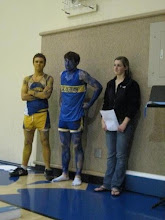Canto 13
No fruit, but poisoned thorns- an allusion to both the garden of eden and jesus, the boughs of the dying people carry no fruit as the tree of knowledge did. This could show that these people have not learned from their mistakes. The thorns are tied into jesus' crown of thorns which he wore as he was crucified. These souls wear their own crown of thorns for eternity.
Canto 14
"he was one of the seven kings who besieged Thebes" "disdain for god" - Thebes, was an ancient city in egypt. The seven kings who stormed it were adrastus, amphiaraus, capaneus, hippomedon, parthenopeus,polynices,and tydeus. Capaeneus ithe man who lays under the raining fire. He is famous for defying the god zeus, saying that zeus himself could not stop him from scaling the wall. Arrogance is his flaw.
canto 15
"who gains the victory, not one who loses." Shows the persons arrogance, they are burning in hell yet openly defies god and acts like they achieved some victory. Dante is using him as an example to warn against such arrogance but at the same tim he could be criticizing the church. THis man might only believe in himself, yet is punished for his beliefs.
(sidenote, I have noticed that there are almost No female characters in all of hell, only the nagels mentioned before hell. This could be because they were all in heaven or purgatory, or it could show how dante does not have any feminine interaction.
Level 8
15 years ago
